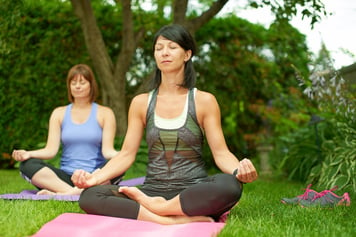During the holiday season, employees at big box stores all over the country dread the large crowds. In 2021, experts predicted that Americans would spend over $960 billion to bring others joy. Just to put that into perspective, those numbers are higher than the combined annual gross domestic products of Australia and Argentina, according to World Bank data. This is a staggering amount of money that is more than what most countries spend and earn in a year.
Giving a gift shows genuine care and it brightens the day of the receiver. But it also has a positive impact on the giver. Scientifically speaking, the act of giving triggers dopamine. Dopamine is a neurotransmitter responsible for feelings of happiness. Once our reward pathway is stimulated, we crave more dopamine, so we do more which leads to even more giving. This cycle is what strengthens bonds within families and communities. By replacing despair with hope and solidarity through gift-giving, we improve our collective wellbeing and happiness.
Take a minute to reflect on a past holiday when you received more than what you asked for. Do you remember a material object that you thought was everything that you wanted? Do you still have it today? Or do you cherish the memory of receiving it long after you let it go? The moral of the story is a cliche. But it’s true. It’s the thought that counts. Just because someone has money to buy you fancy gifts doesn’t mean they love you any more than someone that can’t. The real gift is the genuine thought behind it.
This brings us to an opportunity where anyone can give back to others. And it doesn’t matter how much money you have to spend. Volunteering and spending time with others is a great way to give back and show you care. In addition, it’ll enhance your happiness while building lifelong friendships and warm memories. Find a charity, cause or person that sparks your passion for serving others.
Serving others offers the same mental and physical health benefits as giving a tangible object. Furthermore, acts of service bind social connections and provide a sense of community and accomplishment. According to the Mayo Clinic, giving back has benefits beyond a rush of dopamine. Through the course of volunteering, you strengthen your health and bolster your community. But giving back also offers the chance to make new friends and build a stronger support system. It’s an excellent way to avoid isolation and its detrimental impact on your wellbeing.
Spending time with family and friends provides much more enduring memories than most gifts. It’s possible that you can activate your reward system, that flow of dopamine, without emptying your wallet. Additionally, you can avoid guilt or shame if you can’t afford expensive gifts by volunteering.
The memories created during these times are often what we hold on to the longest. Lastly, volunteering is a continual opportunity to receive and give benefits of health and wellbeing. Volunteering your time and energy can look however you want. Check out Volunteer Match to find ways you can give back. This year, consider buying fewer gifts and, instead, giving some of your time and attention to others by volunteering. It doesn’t need to be a monumental gesture, charitable achievement, or expensive gift. It just needs to be meaningful and memorable.
.png?width=1650&height=1275&name=website%20images%20(30).png)
Table of contents


.png?width=356&height=261&name=blog%20post%20pictures%20(4).png)
